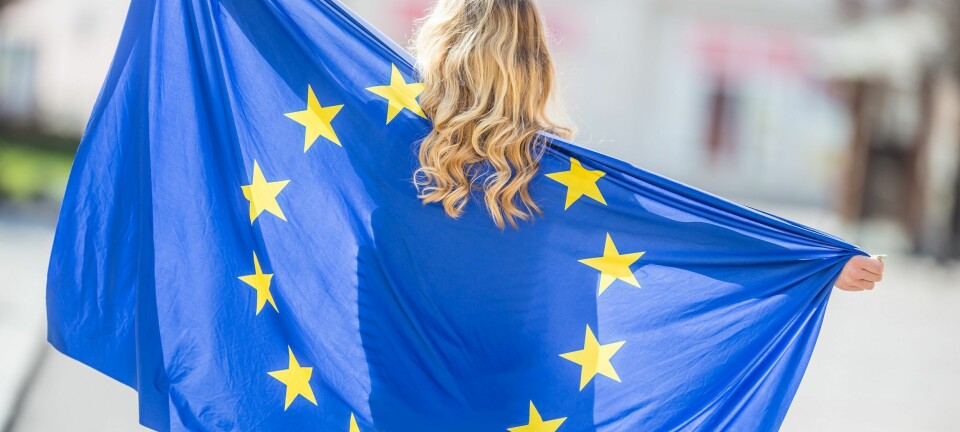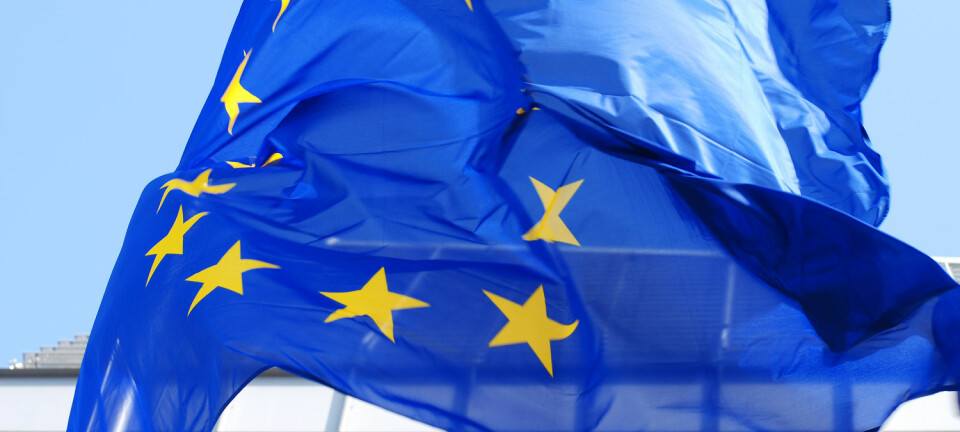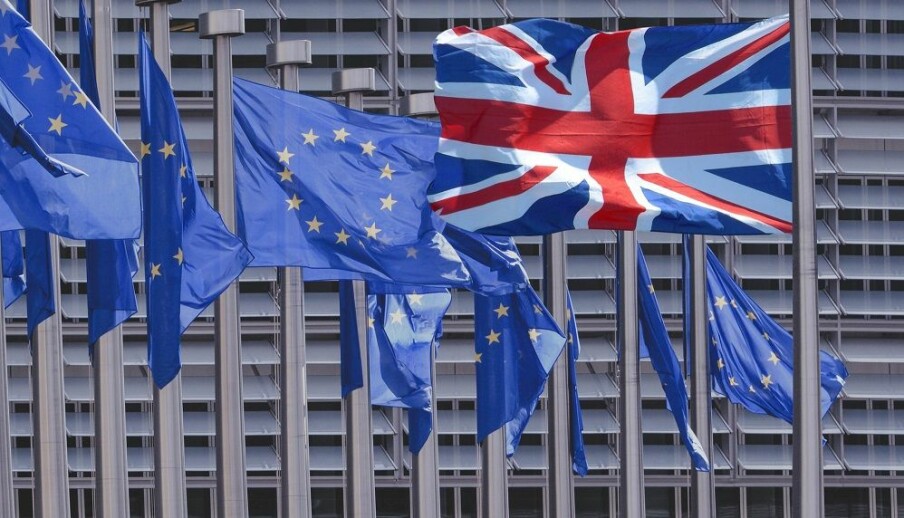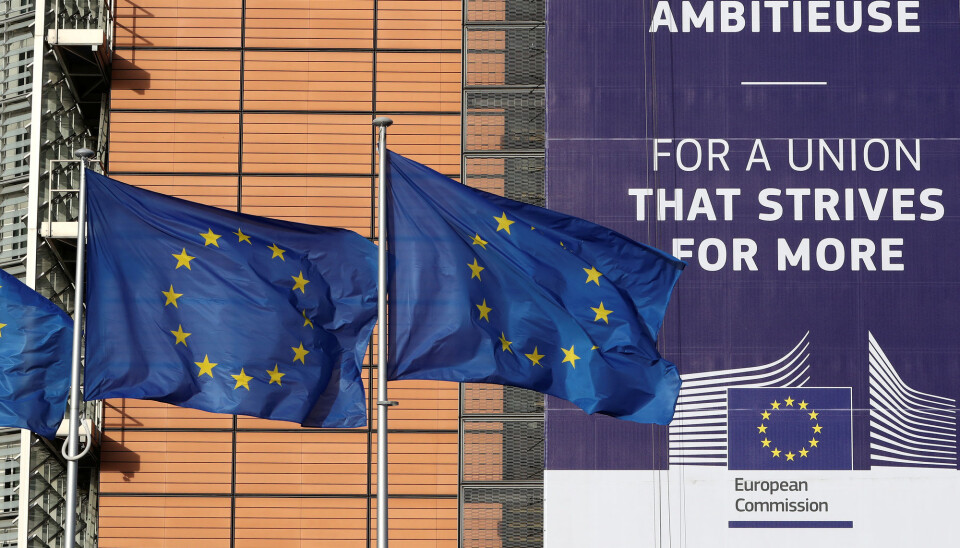
25 years with The European Economic Area:
Politicians, government agencies and Norwegians in general lack knowledge about the country’s agreement with the EU
The 25-year-old European Economic Area (EEA) agreement has been a success for Norway, according to the head of the Norwegian Institute of International Affairs (NUPI). But its successes are almost unknown in Norway.
Twenty-five years ago — after a majority of Norwegians said no to EU membership in a referendum — Norway signed on to the EEA agreement.
The EEA was meant as a "waiting room".
It was there, in the 1990s, that Norwegian politicians who were EU supporters hoped the country would remain only until the Norwegian people came to their senses and realized the country should join the EU.
But this has not happened. The waiting room has become a permanent residence.
A place that Norwegians think is perfectly fine, according to a recent survey.
Clear majority for EEA
Today it is probably a lost cause for politicians to try to get the Norwegian people to support membership in the EU.
At the same time, all of Norway’s political parties —with the exception of the leftist Red Party — have majority support among voters for EEA membership. Even among those who say they will vote for the centrist Centre Party at the next election, there is majority support for the EEA.
A total of 7 out of 10 Norwegians today say that the EEA agreement is good for Norway, according to the new survey by the market research group Sentio Research Norway and the Norwegian Institute of International Affairs, NUPI.
Only 2 out of 10 think the opposite, while 1 in 10 respond "don't know".
NAV did not understand the EEA
Norway has been rocked recently by a scandal involving the Norwegian Labour and Welfare Administration (NAV). At least 48 people have been convicted of social security fraud, because both NAV and the Norwegian courts have misinterpreted EEA regulations.
Several of these people were even sentenced to prison.
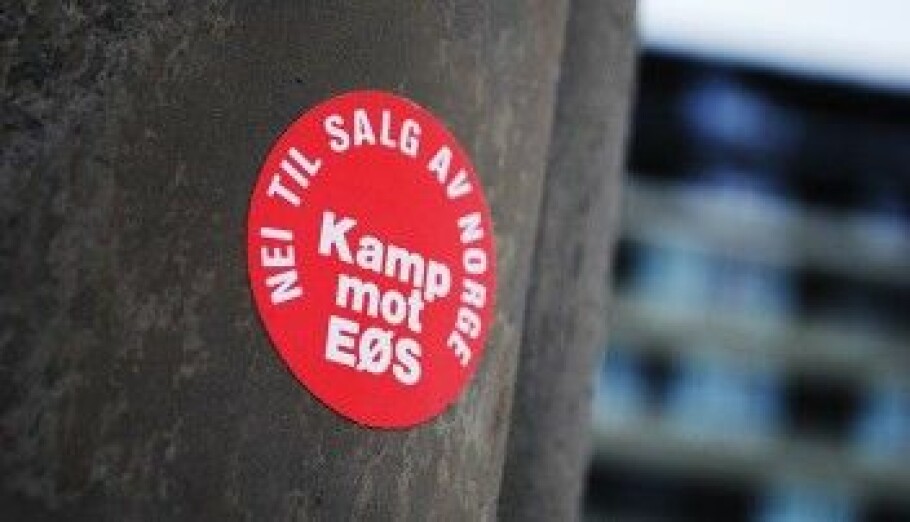
Around 2400 cases may have been handled incorrectly by NAV. These are people who have received support from NAV in the form of sick pay, work assessment money or care allowances while they were in Spain or another EU country.
Norway’s Minister of Labour and Social Affairs Anniken Hauglie has said she will begin an investigation into how neither NAV nor the Norwegian courts understood the fundamentals of the EEA agreement.
Since 2011, it has been clearly stated in the EEA Agreement that a person entitled to social security benefits in one EU/EEA member state shall not lose that right if he or she resides in another member state.
“The NAV case has illustrated a feature of the EEA agreement that we haven’t seen that often in Norway. This is that it also gives us rights as citizens,” NUPI researcher Pernille Rieker said during a seminar organised by NUPI on the EEA in late November.
The EEA then, is not merely about cooperation between member states.
The EEA is also gives rights to Norwegian citizens.
The EU's four freedoms
Among the central tenets of the EU are its so-called four freedoms: free movement of people, goods, services and capital between European countries.
However, NAV took the legal position that a social security recipient must stay in Norway in order to receive work assessment money, unemployment benefits and care allowances.
But as long as Norway is a member of the EEA, it is the EU's rules that apply. These rules state that Norwegians are entitled to these benefits — even if those Norwegians are residing in or travel to another EU country.
Thus, NAV did not understand what the EEA Agreement entails, in spite of having help from many lawyers.
The EEA agreement is very robust
NUPI has now published a special issue of the journal Internasjonal Politikk (International Politics) which focuses on Norway and the EEA, 25 years after the agreement was signed.
The goal of the researchers is to increase awareness in Norway about the EEA.
Ulf Sverdrup, NUPI director, concluded during the seminar that the EEA agreement on the whole has been a success for Norway.
“The EEA agreement has also proved to be very robust,” Sverdrup said.
And he is quite convinced that the deal will last.

Norway steadily closer to the EU
At the same time, Sverdrup noted that the EEA Agreement is a dynamic cooperative effort. It is constantly evolving.
Sverdrup does not believe it is possible to stop the trend for Norway to become closer and closer to the EU.
“Norway currently has around 80 agreements with the EU, in a number of different areas. This has led to us becoming much more like the EU than we have been previously,” he said.
“Nevertheless, it’s not a workable alternative to freeze cooperation at today's level. Cooperation between Norway and the EU will only get closer,” the NUPI director said.
There is no alternative
Sverdrup believes that Norway really has no other alternative than the EEA.
Not many Norwegians support joining the EU.
Nor do many want the country to be without an agreement with the EU.
To the extent that people expressed themselves critically about the EEA when Sentio / NUPI asked them, people said that Norway should have less binding cooperation with the EU.
At the same time, the UK's Brexit chaos has certainly frightened people who wanted Norway to try and renegotiate the EEA agreement.
“Norway has not wanted to renegotiate the agreement, because we would be unlikely to have equally good results from any negotiations today,” Sverdrup said.
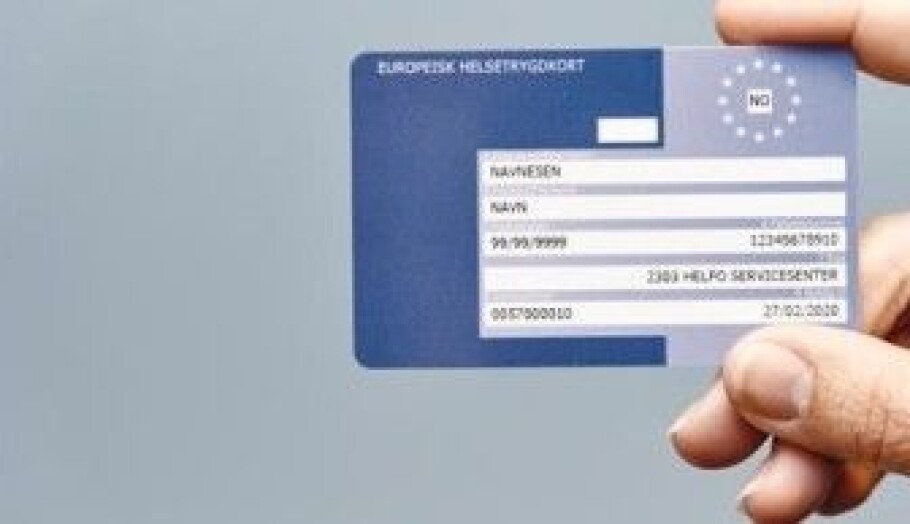
Norway’s biggest political compromise
Bjørn Tore Godal was the Minister for Foreign Affairs for Norway and the Labour Party when the EEA Agreement was negotiated. It was he who actually signed the agreement in 1994. Today he is quite proud of that.
“Compromise is not a word of honour in Norway. We are either for or against things,” Godal said during the NUPI seminar.
“At the same time, there is no doubt that the EEA has been the biggest political compromise reached in Norway in recent times,” he said.
“All governments, with participants from the Progress Party to the Socialst Left Party, have agreed to this compromise. Not because they think this is the best, but because this is what we can agree on when our goal is to safeguard Norway's basic national interests,” Godal said.
"I think that's a good thing.”
The Storting accepts 90 per cent
The EU today has around 500 million people. The EEA countries —Norway, Iceland and Liechtenstein — have a combined population of around 6 million people.
“It's no wonder, then, that the EU sets the conditions for cooperation under the EEA,” says Godal. “But still, things are going well for Norway.”
Godal said the proof of this is that 90 per cent of all EU directives pass through the Storting without any debate.
“Things should be debated. But obviously there is so much common sense from Europe that we don’t even bother to discuss it in Norway. If what was coming from the EU hadn’t made sense, we would have been out of the EEA a long time ago,” Godal said.
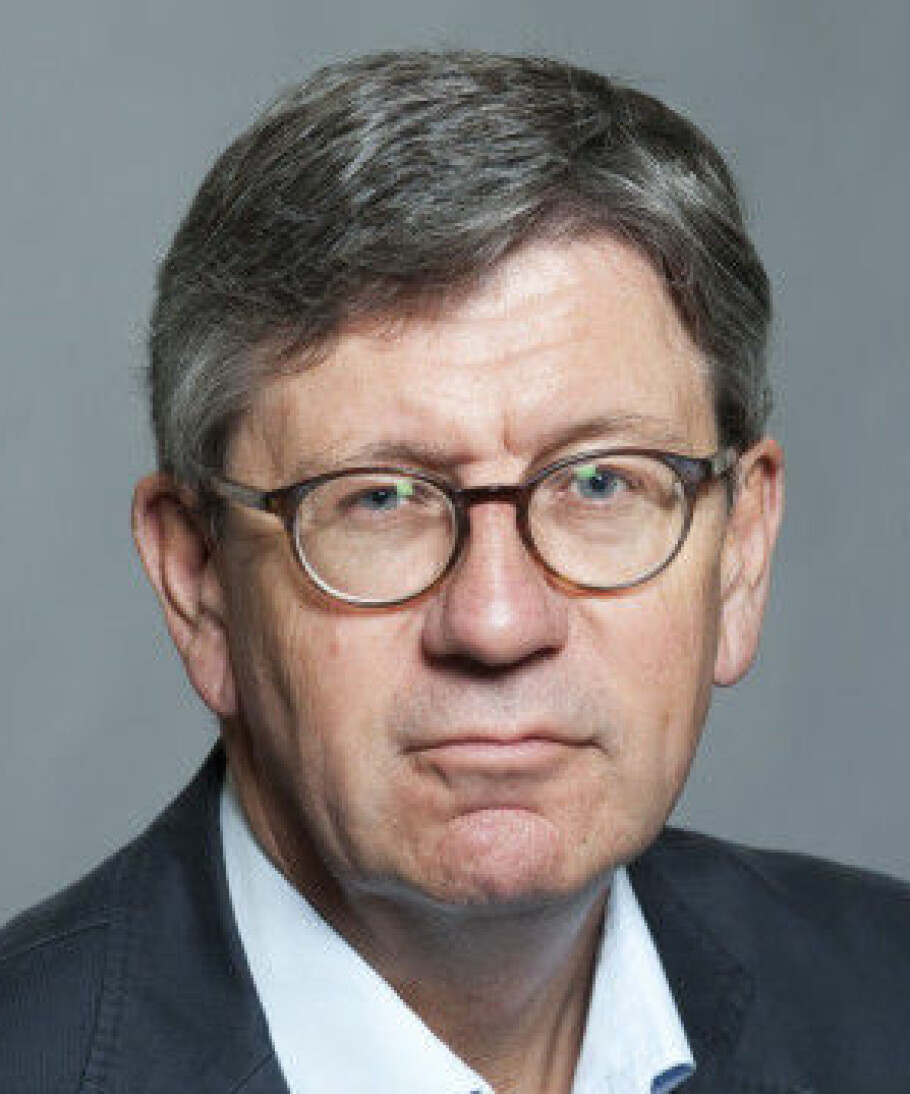
Norway should use its veto more
Norway's former foreign minister also questioned why Norway doesn’t use its veto power more often on EU proposals that the country absolutely doesn’t like.
“We have the full right to do so in accordance with the EEA Agreement,” Godal said.
Such a veto would trigger countermeasures from the EU, on par with the damage the EU judges Norway’s action would inflict on the European community.
“But the EU took it easy when Norway vetoed the Postal Directive. That veto did not ruin much for Norway,” Godal observed.
For some reason, however, sitting Norwegian governments have not dared to use their veto right in the EEA, despite the fact that the EU is an organization full of countries that vigorously discuss issues and can spend years reaching an agreement.
“We’re up here in the north and feel like it's very dangerous to have an opinion that is completely different from the EU’s position,” Godal said.
“But that's not the way it is in the EU. That should not be the case in the EEA either,” he said.
A need for more EEA debate
Godal also believes that Norwegians should debate the EEA more internally, among themselves.
One example he cited was the ACER debate that exploded in Norway last year. ACER is an acronym for the EU Agency for the Cooperation of Energy Regulators. The idea behind the agency was to “boost the completion of an integrated internal energy market in the EU,” according to a panel debate sponsored by the Fridtjof Nansen Institute and summarized on their website. This was something the EU had already debated for four or five years, without anyone in Norway really realizing it.
“The EU was now discussing new energy, and the opposition in the EU was great. But we heard nothing about it in Norway,” he said.
Godal says that everyone who is keen on Norwegian cooperation with the EU should get involved at an early stage. In general, Norwegians should be better at monitoring what is happening in the EU. Both parliamentary representatives and other politicians should stay better informed about the EU.
“Norway has a lot of room for manoeuvring in the EEA. This is room we don’t use. Instead, we blame the EU and the EEA,” Godal said.

Norway is a research member of the EU
Research is an area in which Norway is for all practical purposes a member of the EU, without most researchers or people in general being aware of it.
Åse Gornitzka, Vice-Rector for Research and Internationalization at the University of Oslo, said during the NUPI EEA seminar that Norway is more closely linked to the EU when it comes to research than in perhaps any other area.
But the Storting, the Norwegian Parliament, also doesn’t seem to be that aware of the extent of Norway's research ties to the EU. Politicians are happy to discuss Norwegian preschool policy in the light of the EU. But parliamentary politicians refrain from discussing Norwegian research and the EU. Why?
“Our research collaboration with the EU is expanding. At the same time, the bill for this collaboration has grown larger,” Gornitzka said.
The EU is also increasingly setting the research agenda in Norway, she said.
Through the EU, Norwegian researchers also have access to a much larger network.
Gornitzka noted that research policy decisions made by the EU and the EEA are not politically neutral. One example is innovation policy and what Europe should aim for in the future. This is where research policy choices are constantly being made by the EU — choices that also matter to Norway.
The EU also indirectly controls Norwegian research policy. Among other things, the Research Council of Norway is likely to keep its eye on what is happening in the EU when designing new Norwegian research programmes.
Shockingly little knowledge of the EEA
All in all, the EEA means a lot to Norway.
“At the same time, our knowledge of the EEA is shockingly low,” Sverdrup said.
The NUPI director himself has a possible explanation as to why.
“When politicians are not interested in the EEA, journalists aren’t interested either. And when journalists are not interested in the EEA, politicians aren’t interested,” he said.
If Norwegian schools also tell their students that Norway is a country that is not rightly a member of the EU —but where in reality the country is deeply involved — then it may not be so strange that the Norwegian people don’t know that much about the EEA and that discussions related to EEA issues in Norway happen far too late in the process,” he said.
“We won’t necessarily get a better EEA agreement if we have more knowledge,” Sverdrup said. “But we can have a discussion about the EEA, which is better.”
References:
Internasjonal Politikk (in Norwegian) vol 77 (2019), published by NUPI and Cappelen Damm Akademisk
Norwegian Wikipedia article on "Trygdeskandalen I NAV” (NAV social security scandal).
Articles from Agenda Magazine about the social security scandal.
———








